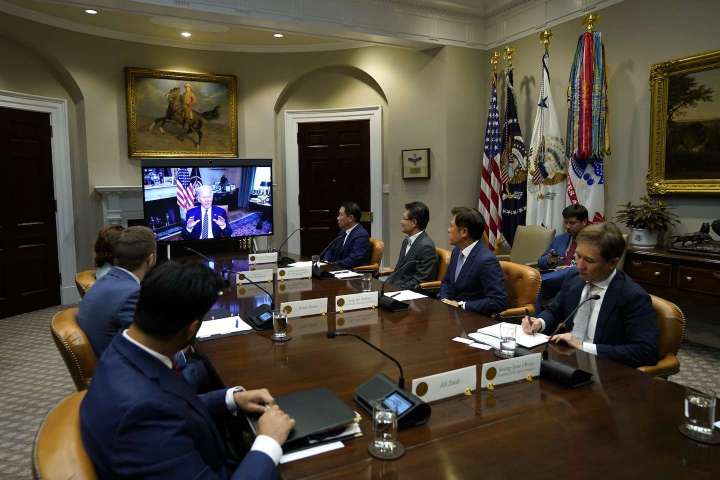President Biden, it’s okay to rest.
Biden’s working through covid is bad for America’s public health

On Wednesday, Biden tested negative and emerged from isolation, praising vaccines and at-home treatments for his recovery. He told reporters, “When my predecessor got covid, he had to get helicoptered to Walter Reed Medical Center. He was severely ill. Thankfully, he recovered. When I got covid, I worked from upstairs of the White House … for the five-day period.”
Biden is not the only covid-stricken government figure who pledged to keep busy — Anthony S. Fauci and Transportation Secretary Pete Buttigieg have done the same.
Follow Karen Attiah‘s opinions
FollowThe announcements, of course, highlight the effectiveness of vaccinations. And I get why Biden, in particular, might want to play up his ability to work. The right has made much of his advanced age and loves to paint him as a senile man unfit for office.
But I’m afraid Biden is modeling the wrong behavior. His statements about working through covid reflect a cultish obsession with busyness that America needs to abolish. Biden could have focused on signaling that rest, along with vaccines and treatments, is a necessary part of health care in the covid age. But we live in a culture that sees rest as weakness and working as strength. And our country’s public health will continue to suffer for it.
I tried pushing through covid. I tested positive the day before Thanksgiving. My symptoms were *quote fingers* mild *quote fingers*; I had a fever for two or three days, loss of taste and smell, and severe chills — nothing warranting hospitalization. I was advised by friends (especially women) who had dealt with covid to rest, rest, rest.
Did I listen? Of course not. I was vaccinated, and I was in great physical shape. I thought I would be fine.
After about a week, I decided I felt well enough to attempt a short drive. But in the car, cognitive confusion set in, along with a fatigue like nothing I had ever experienced before. I made it back home and passed out for eight hours. I tried getting back to work, but I’d fall asleep in my chair after reading only a few paragraphs. I couldn’t drive for weeks. So I began to take rest seriously. It took about a month and a half to get any energy back.
Doctors have been warning that pushing through covid and other viral illness just makes it harder for the immune system to fully recover. Even after a person beats an infection, they can experience post-viral syndrome, which includes fatigue, confusion, trouble concentrating and other symptoms similar to chronic fatigue syndrome.
Of course, many Americans feel pressure to work through illness. We might not have enough sick leave or vacation days, and many hourly workers, or those who support a household, can’t afford to take even a day off. Pushing through increases the risk that a person will have post-exertional malaise, in which a person recovering from illness finds themselves in a “push and crash” loop; they feel better so they exert themselves, then their body again needs total rest.
What will it take for us to normalize rest? And to prioritize our health over work?
We believe in science, right? We tout the power of vaccines, which are backed by medical science and decades of research. But the importance of sleep and rest in fighting illness and restoring immunity are also well documented. Sadly, the science on rest seems no match for America’s testosterone-infused, capitalistic culture that idolizes grit.
In my case, many of the voices that helped give me the psychological permission to slow down and take time to heal have been social justice activists who challenge that culture. Such as the 20th-century radical Audre Lorde, who once said, “Caring for myself is not self-indulgence. It is self-preservation, and that is an act of political warfare.”
And: “Rest pushes back and disrupts a system that views human bodies as a tool for production and labor,” Tricia Hersey wrote. “It is a counter narrative. We know that we are not machines. We are divine.” Hersey is the founder of the Nap Ministry, which aims to spread the gospel of rest, particularly for Black people. Challenging grind culture is more than just lying down. As the Nap Ministry wrote in a social media post, “It is a lifelong meticulous practice that starts with a slow deprogramming, collective thinking, radical care, and refusal.”
While covid case counts rise across the country yet again, it’s more urgent than ever for us to reject the notion that work is more important than our bodies. My fellow Americans, life, liberty and the pursuit of happiness are not possible without rest, for it is a source of strength.
Please, if you have covid, take that nap.






